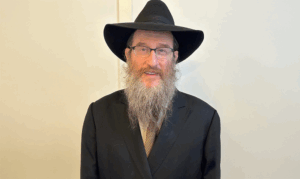Every year, hundreds of hikers spend time on the Appalachian Trail, the almost 2,200 mile path that stretches across 14 states from Georgia to Maine.
In April, 2013, Gerry Largay, a 66-year-old from Brentwood, Tenn., started her hike in West Virginia with a friend. Largay continued by herself after her friend left the hike. On July 22, she got off the trail to take a bathroom break, got lost, and never found the trail again.
When she realized she was lost, she texted her husband: “In somm trouble. Got off trail to go to br. Now lost. Can u call AMC to c if a trail maintainer can help me. Somewhere north of woods road. Xox.”
But there was no cell phone coverage. In ten more tries over the next hour and a half, the text would not send.
The next day, she sought higher elevation and hoped for a cellphone signal. She texted, “Lost since yesterday. Off trail 3 or 4 miles. Call police for what to do pls. Xox.” Still no transmission. Time and again she tried with no success.
Largay set up her tent nearly two miles from the trail. Along with food, water and other supplies, she had a journal, and wrote entries every day until August 10. She wrote again August 18, 27 days after she got lost.
Her entry revealed her grim reality: “When you find my body, please call my husband George and my daughter Kerry. It will be the greatest kindness for them to know that I am dead and where you found me — no matter how many years from now. Please find it in your heart to mail the contents of this bag to one of them.”
An intense seven-day search revealed no leads. Over two years later, Oct. 11, 2015, someone with the Maine warden service found her campsite and remains in forest so thick that it’s used by the US Navy for survival and evasion training.
(This story was reported in several news outlets, including The Atlanta Journal-Constitution, The Boston Globe, The Portland Press-Herald, www.cnn.com.)
Friends felt that Largay’s weak sense of direction contributed to her dilemma, but often we bring trouble on ourselves when we deliberately step off of God’s path and go our own way.
David wrote in Psalmist 25:4, “Show me Your ways, O Lord; Teach me Your paths.”
David obviously was concerned about God’s path. He uses the word way four times (25:4, 8, 9, 12) and the word paths twice (25:4, 10). David wanted God’s guidance to stay on the path that pleased God. He did not want his life to bring any shame on God (25:2, 3).
How do we know God’s way? By immersing ourselves in God’s truth.
David in Psalm 25:5 pleaded, “Lead me in Your truth, and teach me.” This is a reference to God’s Word, where God’s truth is found. His guidance for how to live a fulfilling life of purpose is no secret. God’s precepts are not hidden. They are clearly revealed in the Bible if we’ll just read it and then apply it.
George Barna researched Bible illiteracy a few years ago and summarized his work by saying, “Americans revere the Bible, but, by and large, they don’t read it.”
According to Barna, 60 percent of Americans cannot name even five of the Ten Commandments. Fewer than half of adults can name the four gospels. Twelve percent of adults thought that Joan of Arc was Noah’s wife and that the Sermon on the Mount was preached by Billy Graham. (www.christianitytoday.com/1270946/, “The Scandal of Biblical Illiteracy,” Albert Mohler.)
Not only is the Bible not read, but our culture rejects it as truth. When we reject God’s truth as revealed in His Word, we put ourselves in a precarious position.
I read about a man named Harry Truman who rejected truth. Shortly before the explosion of Mount St. Helens, park rangers tried to evacuate nearby residents. Truman, a long-time resident, refused to leave. He told rangers, “That mountain has never exploded during my 80 years of life, and it isn’t going to explode now.”
When the mountain exploded days later, Truman was buried under an avalanche 500 feet deep. He didn’t accept truth, and it killed him.
Dr. David L. Chancey is pastor, McDonough Road Baptist Church in Fayetteville. The church is located at 352 McDonough Road, near McCurry Park, and invites you to join them this Sunday for Bible study at 9:45 a.m. and worship at 10:55 a.m. Visit them on the web at www.mcdonoughroad.org and like them on Facebook.










Leave a Comment
You must be logged in to post a comment.